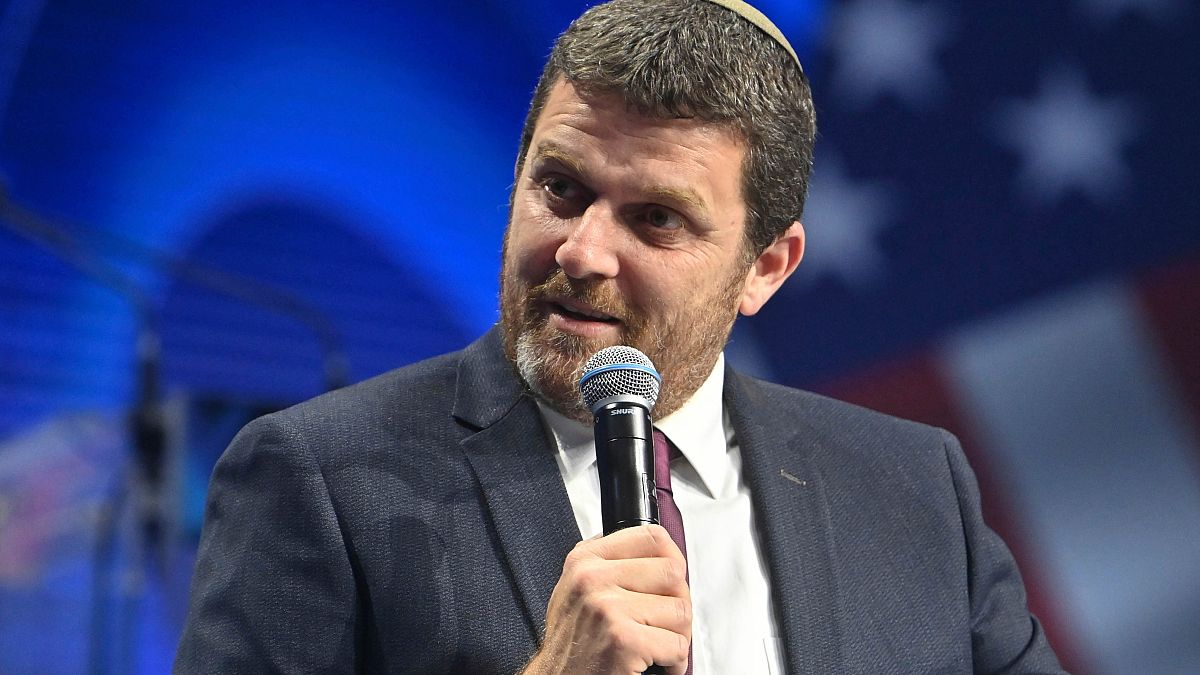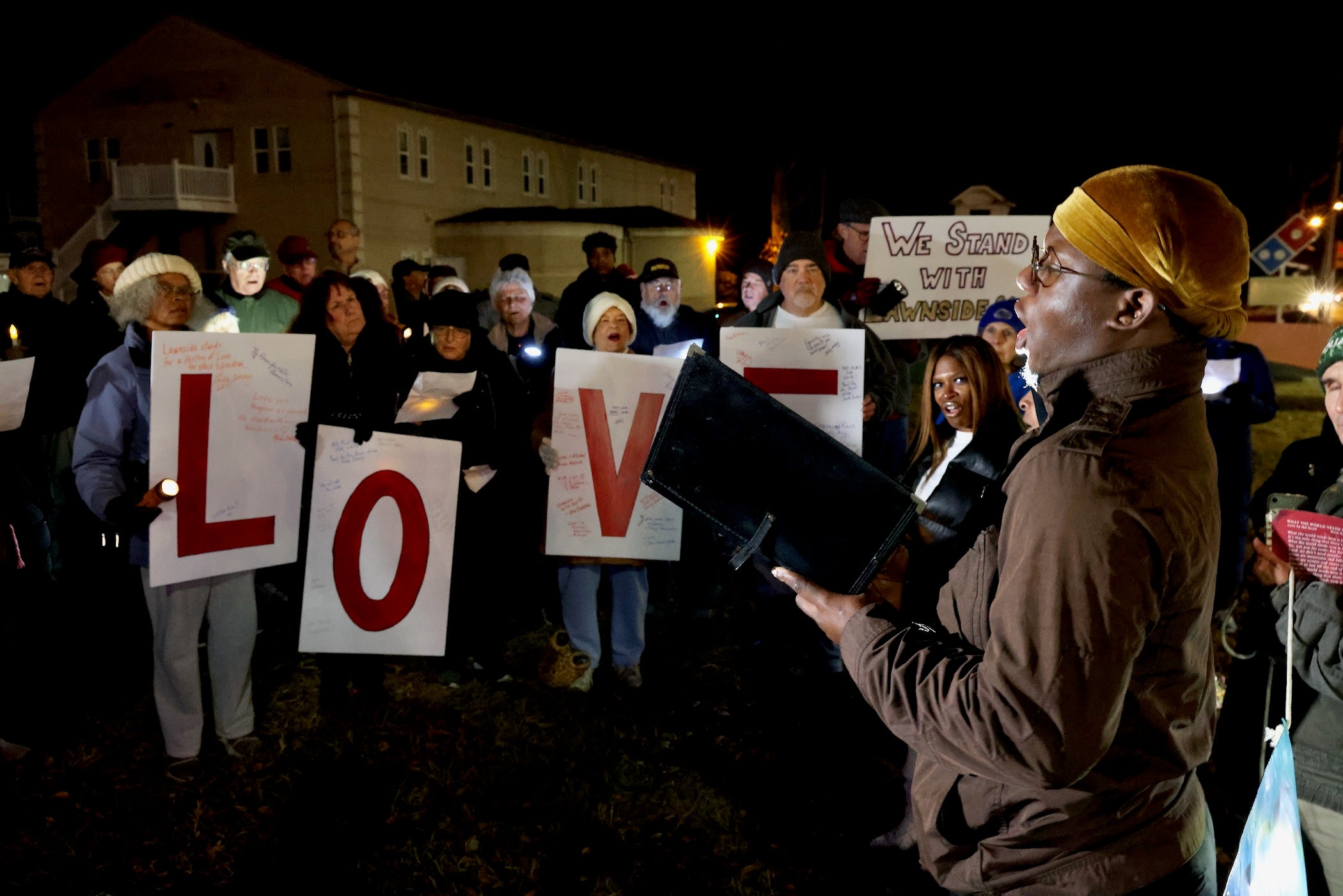World
Brussels, my love? European Jews and Muslims on edge as racism rises

In this edition of Brussels, my love?, we ask if the Israel-Hamas war is turning European societies into breeding grounds for antisemitism and Islamophobia.
With EU officials and MEPs out of town this week, we decided to put the spotlight on associations and influencers representing racialised communities and minority groups in Europe and discuss the impact the Israel-Hamas war is having on their circles.
We were joined by Soundous Boualam, Chief Impact Officer at Brussels Global Review, Kim Smouter, Director General at the European Network Against Racism and Teona Lavrelashvili, Policy Analyst at the European Policy Centre think tank.
Panelists insisted that there was a lack of political will for real change in the area of equality in Europe.
“I’m an EU lover, pro-European, all of that. But the reality is that the EU has not been taking anti-Muslim hatred and Islamophobia seriously,” said Soundous Boualam.
Kim Smouter recalled that the EU has had a number of anti-discrimination legislation covering Islamophobia, anti-Semitism, and Afro-phobia for two decades but that they are not working.
“We see still communities that are feeling unsafe,” said Kim. These, he added, also feel that governments have at times been “taking actions to prevent a freedom of expression of minority groups.”
Discussions also looked at a recent report from the EU Fundamental Rights Agency that noted racism is “relentless” in Europe and on the rise. Data shows that when searching for jobs or housing, people of African descent are experiencing high levels of discrimination, especially in countries like Finland, Austria and Germany, where extreme right-wing parties promoting hatred against minorities are popular. Panelists worry about further discrimination and segregation.
Beyond the news cycle, Brussels, my Love? marked one year since its first appearance on air so in this episode, we say a big thank you to all the faces behind the camera and all our viewers around Europe and the world.
Watch Brussels, my love? on the player above.

World
Malaysia says it will resume search for wreckage of missing Flight MH370

World
Iran expands weaponization capabilities critical for employing nuclear bomb
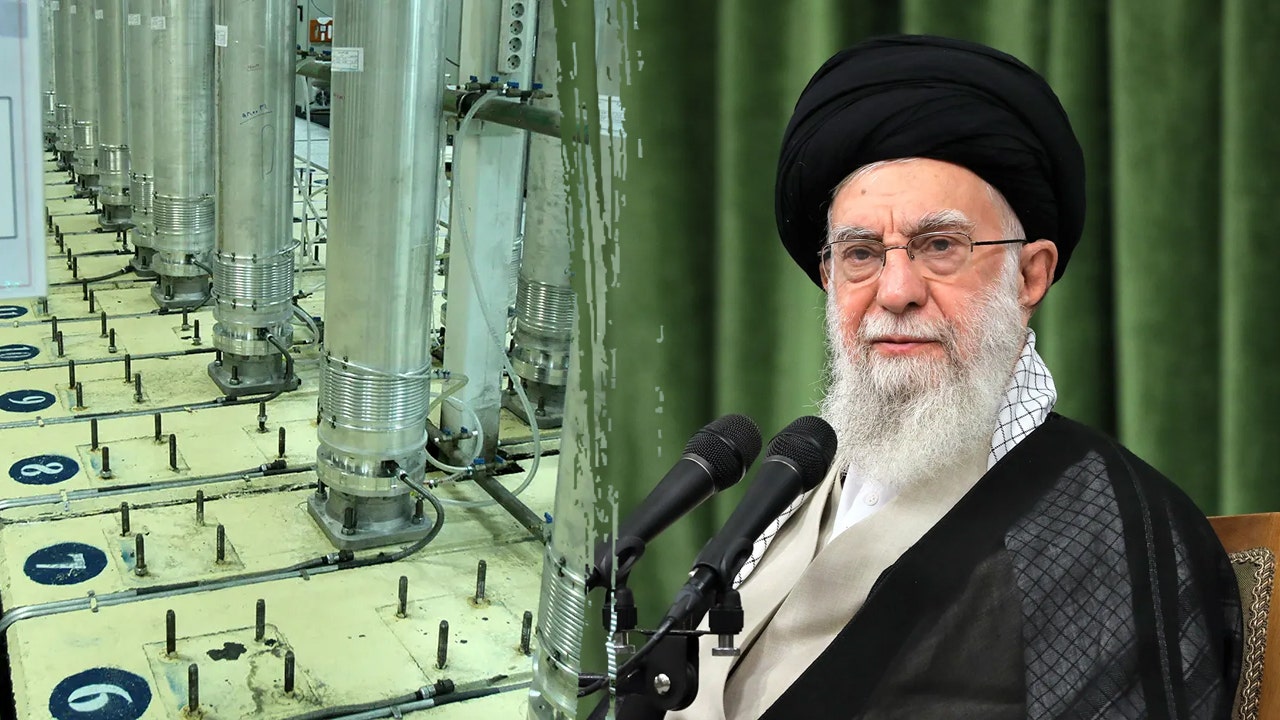
The Islamic Republic of Iran has continued its pursuit of obtaining a nuclear weapon by not only stockpiling enriched uranium to near-weapons grade purity, it has expanded its covert actions in developing its weaponization capabilities.
According to information obtained by sources embedded in the Iranian regime and supplied to the National Council of Resistance of Iran (NCRI), an opposition organization based out of D.C. and Paris, there are indications that Tehran has once again renewed efforts to advance its ability to detonate a nuclear weapon.
At the head of Iran’s detonators program is an organization the NCRI has dubbed METFAZ, which is the Farsi acronym for the Center for Research and Expansion of Technologies on Explosions and Impact, and its recent movements at a previously deactivated site, known as Sanjarian, has drawn immense speculation.
The Foundation for Defense of Democracies has analyzed where Iran’s nuclear infrastructure is located. (Foundation for Defense of Democracies)
IRAN HIDING MISSILE, DRONE PROGRAMS UNDER GUISE OF COMMERCIAL FRONT TO EVADE SANCTIONS
“Our information shows the METFAZ has expanded its activities, intensified activities, and their main focus is basically the detonation of the nuclear bomb,” Alireza Jafarzadeh, deputy director of the NCRI in the U.S., told Fox News Digital. “When you make a bomb, you have the fissile material at the center of it, but you need to be able to trigger it, to detonate it, and that’s a sophisticated process.
“It’s important to see what METFAZ does and follow their activities because that is sort of like a gauge on figuring out where the whole nuclear weapons program is,” he added.
Iran has at least a dozen sites across the country dedicated to nuclear development, weaponization, research and heavy water production, but information shared with Fox News Digital suggests that there has been an increase in covert activity in at least two of these locations, including Sanjarian, which was once one of Iran’s top weaponization facilities.
The Sanjarian site, located roughly 25 miles east of Tehran and once central to Iran’s nuclear program under what is known as the Amad Plan, was believed to have been largely inactive between 2009 and late 2020 after stiff international pushback on Iran’s nuclear program.
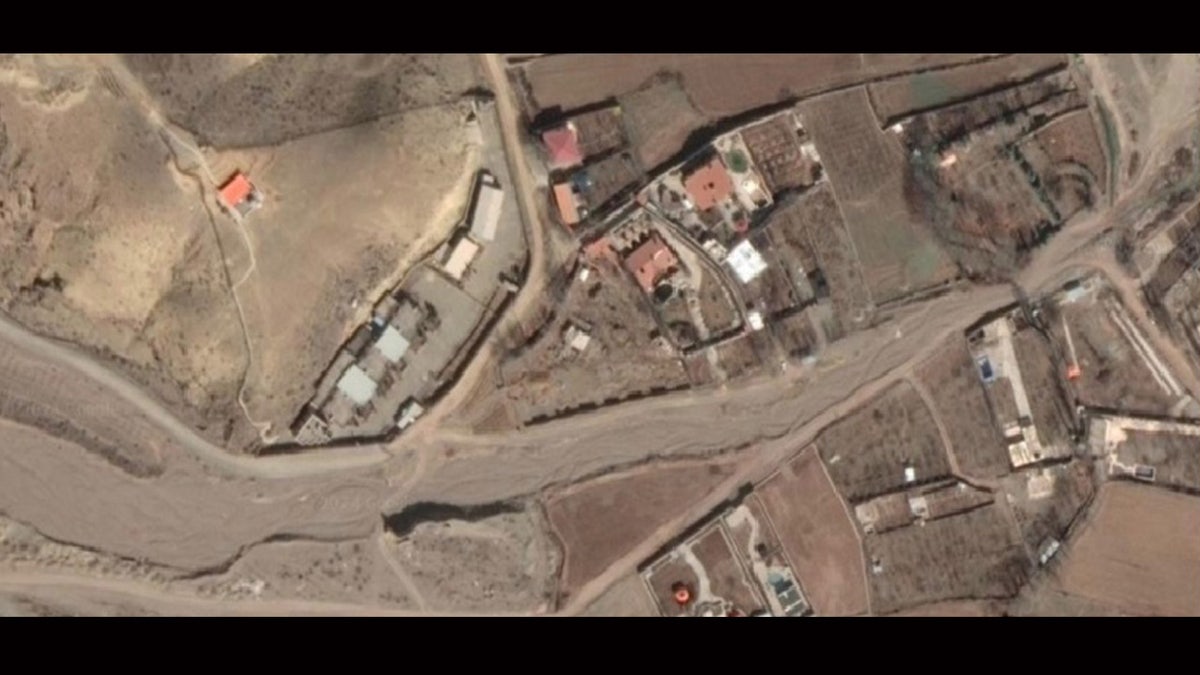
The Sanjarian site in 2017, when the NCRI announced that its activities had moved to Plan 6 in Parchin. (Image provided by the NCRI)
Though by October 2020 renewed activity had returned to the area under the alleged guise of a filming team, first captured through satellite imagery and which the Islamic Republic used to justify why vehicles had reportedly been regularly parked outside the formerly top nuclear site.
In 2022, trees were planted along the entrance road to the compound, effectively blocking satellite imagery from monitoring vehicles stationed there, before a security gate was then believed to have been installed in May 2023, according to information also verified by the Institute for Science and International Security.
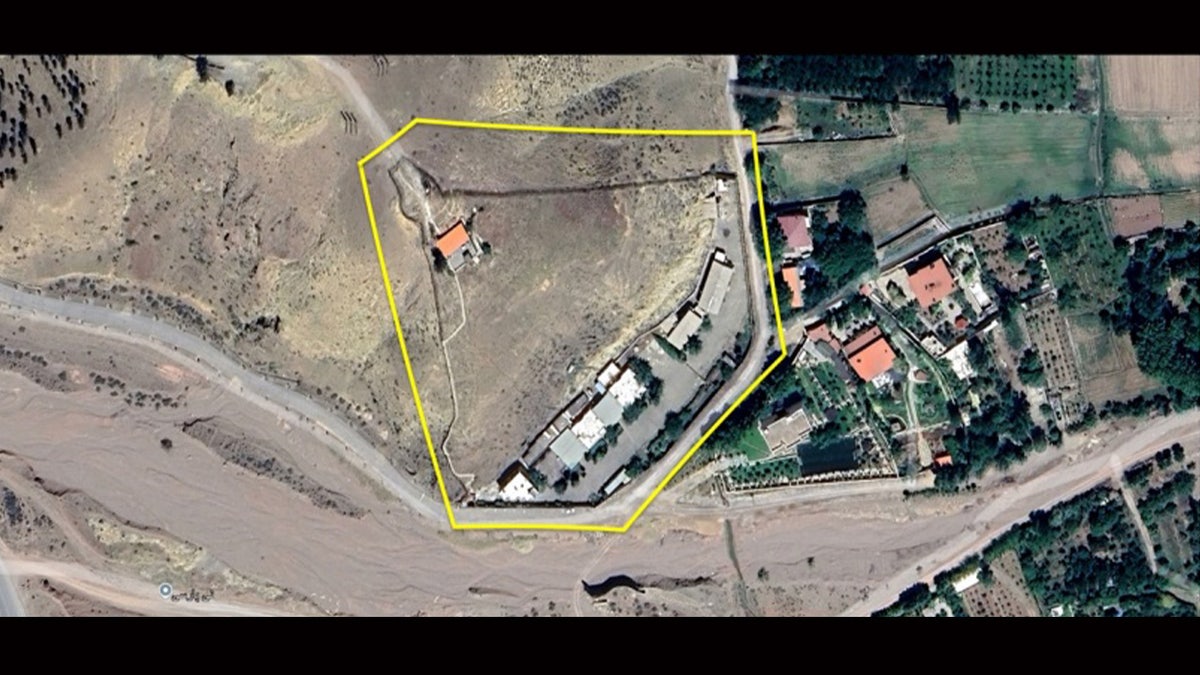
Sanjarian in 2024 (Image provided by the NCRI)
Now, according to details supplied by on-the-ground sources to the NCRI this month, top nuclear experts have been seen regularly visiting the site since April 2024 and are believed to be operating under the front company known as Arvin Kimia Abzaar, which claims to be affiliated with the oil and gas industry, a sector in which Iran has long attempted to conceal its activities.
ISRAEL EYES IRAN NUKE SITES AMID REPORTS TRUMP MULLS MOVES TO BLOCK TEHRAN ATOMIC PROGRAM
Jafarzadeh said one of the executives of the Arvin Kimia Abzaar company is Saeed Borji, who has been a well-known member of the Islamic Revolutionary Guard Corps since 1980 and has long headed METFAZ.
METFAZ falls under Iran’s Organization of Defensive Innovation and Research, which is widely known to security experts as the organization spearheading Iran’s nuclear development and is suspected of using the Sanjarian site for renewed research on exoloding bridgewire (EWB) detonators.
Iran has previously attempted to conceal its EBW detonators program, a system first invented in the 1940s to deploy atomic warheads but which has expanded into non-military sectors, under activities relating to the oil industry.
In a 2015 report, the United Nations nuclear watchdog, the International Atomic Energy Agency (IAEA), noted that Iran’s detonator development was an “integral part of a program to develop an implosion-type nuclear explosive device.”
It also highlighted how Iran attempted to conceal its program by alleging during a May 20, 2014, meeting that the detonator program dating back to 2000-2003 was related to Tehran’s aerospace industry and was needed to “help prevent explosive accidents” but which the IAEA determined was “inconsistent with the timeframe and unrelated to the detonator development program.”

Technicians work at the Arak heavy water reactor’s secondary circuit as officials and media visit the site in December 2019. (Atomic Energy Organization of Iran/AP)
During the same 2014 meeting, Iran claimed that “around 2007 its oil and gas industry had identified a requirement for EBW detonators for the development of deep borehole severing devices.”
FALL OF SYRIA’S BASHAR ASSAD IS STRATEGIC BLOW TO IRAN AND RUSSIA, EXPERTS SAY
The IAEA assessed that while the application of EBW detonators, which are fired within “sub-microsecond simultaneity,” are “not inconsistent with specialized industry practices,” the detonators that Iran has developed “have characteristics relevant to a nuclear explosive device.”
“The Iranian regime has really basically, over the years, used deceptive tactics – lies, stalling, playing games, dragging [their feet], wasting time,” Jafarzadeh said when asked about this report. “That’s the way they’re dealing with the IAEA, with the goal of moving their own nuclear weapons program forward without being accountable for anything.”
The IAEA did not respond to Fox News Digital’s questions on the NCRI’s most recent findings, which were shared with the nuclear watchdog this week, and it remains unclear what advancements or research Iran continues to pursue in the detonator field.
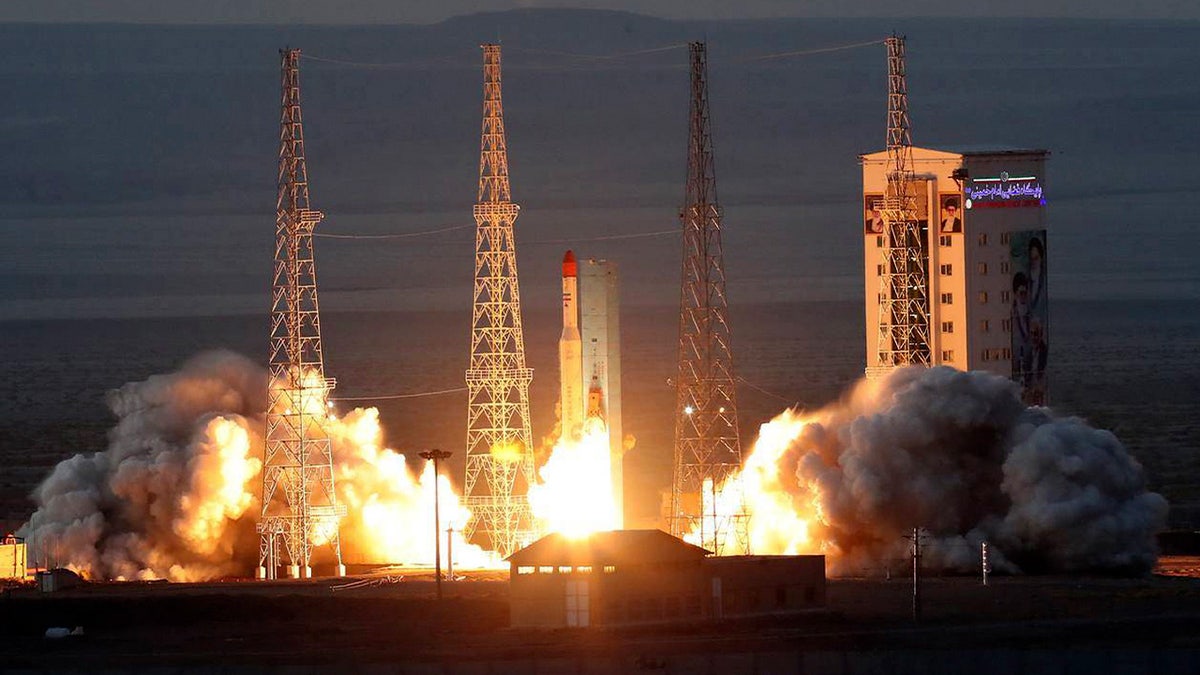
The launch of a Simorgh, or “Phoenix,” rocket is shown at the Imam Khomeini Space Launch Terminal in Iran’s Semnan province on Dec. 6, 2024. (Iranian Defense Ministry via AP)
“While the international community and the IAEA have mainly focused on the amount and the enrichment level of uranium Tehran possesses, which would provide fissile material for the bomb, the central part, namely the weaponization, has continued with little scrutiny,” Jafarzadeh told Fox News Digital.
The NCRI also found that METFAZ, which operates out of a military site known as Parchin some 30 miles southeast of Tehran, has expanded its Plan 6 complex where it conducts explosive tests and production.
Parchin, which is made up of several military industrial complexes, was targeted in Israel’s October 2024 strikes. According to the Institute for Science and International Security, the strikes destroyed “multiple buildings” within the complex, including a “high explosive test chamber” known as Taleghan 2.
Iran’s layered approach to its nuclear program, which relies on networks operating under the guise of privately owned companies, false operations and immense ambiguity, has made tracking Tehran’s nuclear program difficult for even agencies dedicated to nuclear security, like the IAEA, Jafarzadeh said.
“The regime has used deceptive tactics to prevent any mechanism for verification, and it has yet to provide an opportunity or the means for the IAEA to have a satisfactory answer to the inquiries it has raised,” he told Fox News Digital. “Our revelation today shows that the regime has no transparency related to its program for building an atomic bomb and is moving towards building the bomb at a rapid pace.”
The NCRI confirms that neither the Sanjarian site nor Parchin’s Plan 6 have ever been inspected by the IAEA.
World
At least eight migrants drown after boat collision off Greece’s coast

Authorities say at least eight people died after the driver lost control of the boat as he attempted to flee.
At least eight refugees and migrants have drowned off the coast of Greece after the coastguard chased a boat they were on in the Aegean Sea.
The speedboat capsized near the island of Rhodes as it attempted to flee a Greek patrol vessel, authorities said on Friday, adding that 18 people were rescued.
A coastguard statement said the driver “lost control” of the boat, causing several passengers to fall overboard.
Coastguard vessels retrieved eight bodies as a helicopter from the Hellenic Air Force searched for survivors. It remains unclear how many people were on board.
Greek authorities said they detected the vessel as it attempted to disembark people near Afandou Beach, on the eastern coast of the Greek island of Rhodes.
Greek media outlet Kathimerini reported that the boat collided with the coastguard’s vessel during the chase, adding that the driver of the boat was arrested.
Greece has seen a 25-percent rise this year in the number of migrant and refugee arrivals, with a 30-percent rise in Rhodes and the southeast Aegean, according to the Ministry of Migration and Asylum.
In late November, nine people, including six minors and two women, died after two boats sank in separate incidents near the islands of Samos and Lesbos.
Another five people died in a sinking near the island of Crete earlier this month.
Greece has been accused of adopting an increasingly hostile approach towards migration in recent years. Its coastguard has been repeatedly accused by asylum seekers and humanitarian organisations of capsizing boats by trying to tow them or prevent their disembarkation on its coasts.
The European Union also found evidence of human rights abuses at the recently constructed, EU-funded refugee camps on the Greek Aegean islands, including allegations of sexual and other violence against children.
-

 Politics1 week ago
Politics1 week agoCanadian premier threatens to cut off energy imports to US if Trump imposes tariff on country
-
/cdn.vox-cdn.com/uploads/chorus_asset/file/25782636/247422_ChatGPT_anniversary_CVirginia.jpg)
/cdn.vox-cdn.com/uploads/chorus_asset/file/25782636/247422_ChatGPT_anniversary_CVirginia.jpg) Technology1 week ago
Technology1 week agoInside the launch — and future — of ChatGPT
-
/cdn.vox-cdn.com/uploads/chorus_asset/file/25789444/1258459915.jpg)
/cdn.vox-cdn.com/uploads/chorus_asset/file/25789444/1258459915.jpg) Technology6 days ago
Technology6 days agoOpenAI cofounder Ilya Sutskever says the way AI is built is about to change
-

 Politics6 days ago
Politics6 days agoU.S. Supreme Court will decide if oil industry may sue to block California's zero-emissions goal
-
/cdn.vox-cdn.com/uploads/chorus_asset/file/25546252/STK169_Mark_Zuckerburg_CVIRGINIA_D.jpg)
/cdn.vox-cdn.com/uploads/chorus_asset/file/25546252/STK169_Mark_Zuckerburg_CVIRGINIA_D.jpg) Technology7 days ago
Technology7 days agoMeta asks the US government to block OpenAI’s switch to a for-profit
-

 Politics1 week ago
Politics1 week agoConservative group debuts major ad buy in key senators' states as 'soft appeal' for Hegseth, Gabbard, Patel
-

 Business5 days ago
Business5 days agoFreddie Freeman's World Series walk-off grand slam baseball sells at auction for $1.56 million
-
/cdn.vox-cdn.com/uploads/chorus_asset/file/23951353/STK043_VRG_Illo_N_Barclay_3_Meta.jpg)
/cdn.vox-cdn.com/uploads/chorus_asset/file/23951353/STK043_VRG_Illo_N_Barclay_3_Meta.jpg) Technology5 days ago
Technology5 days agoMeta’s Instagram boss: who posted something matters more in the AI age

